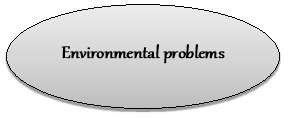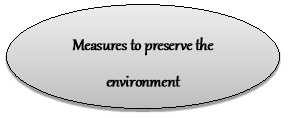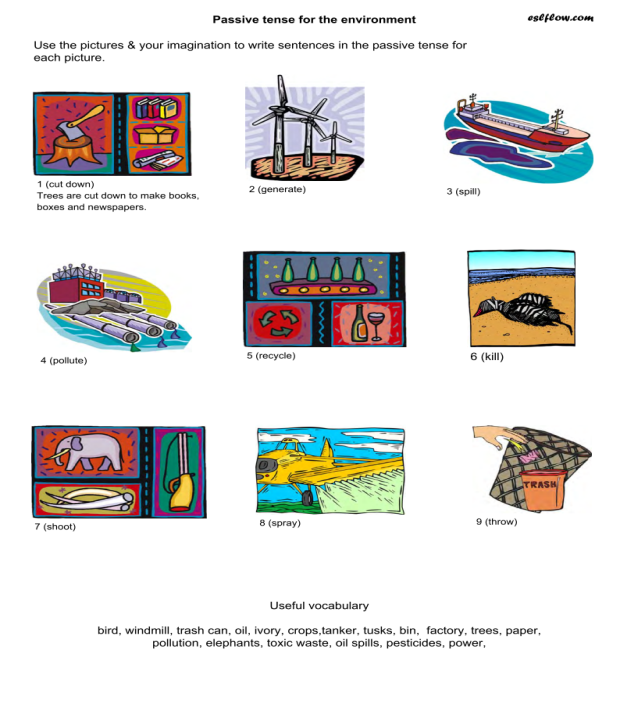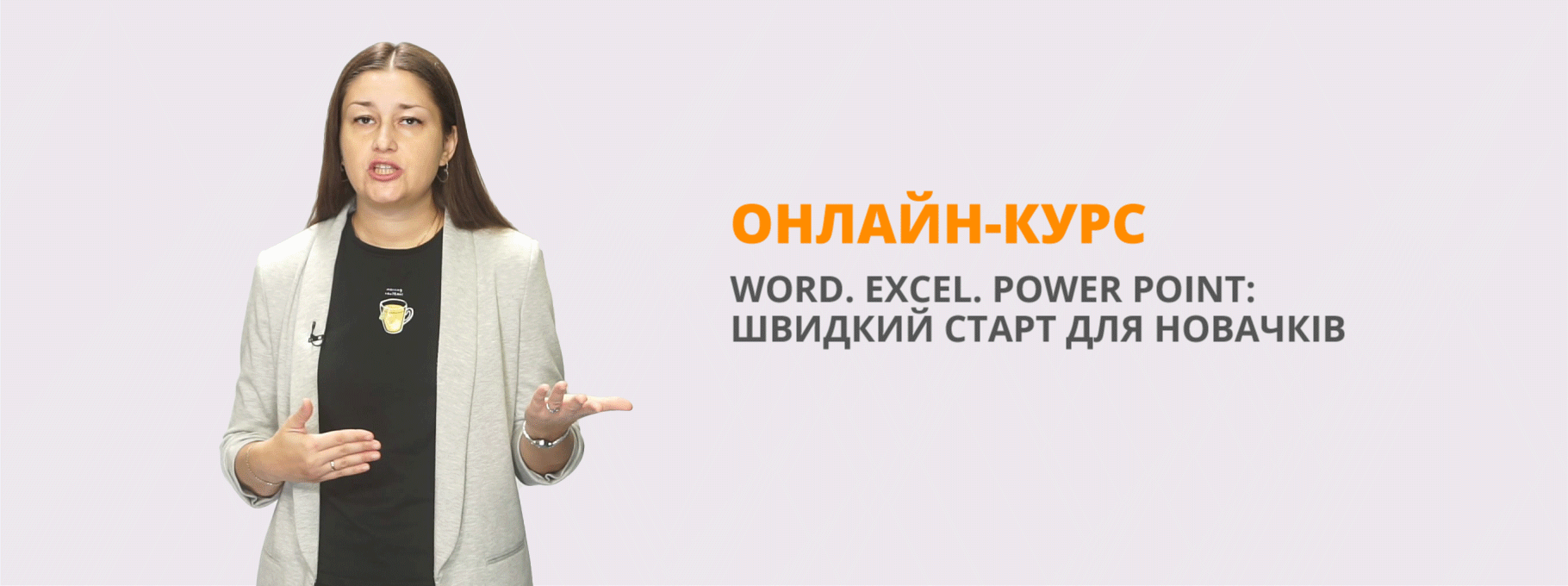"Environmental Problems and the Ways to Solve Them"
Чередніченко Ю.М. План-конспект уроку англійської мови в 11 класі на тему: "Проблеми довкілля та шляхи їх подолання". Розробка уроку, яка спрямована на удосконалення навичок володіння мовленнєвою діяльністю за темою «Захист довкілля», систематизацію комунікативних навичок індивідуальної роботи; удосконалення навичок аудіювання; практикувння навичок вживання пасивного стану на письмі та в усному мовленні.
P.S.Презентація до уроку та технологічна карта уроку знаходяться на моїй сторінці
ПЛАН УРОКУ З АНГЛІЙСЬКОЇ МОВИ
ДАТА ПРОВЕДЕННЯ: 31.01.2019 року
КЛАС 11
ВЗВОД 41
ТЕМА «Проблеми довкілля та шляхи їх подолання»
Topic «Environmental Problems and the Ways to Solve them»
Цілі:
Практична: удосконалювати навички володіння мовленнєвою діяльністю за темою «Захист довкілля», систематизувати комунікативні навички індивідуальної роботи; удосконалювати навички аудіювання; практикувати навички вживання пасивного стану на письмі та в усному мовленні.
Освітня: активізувати навички самостійного рішення комунікативного спілкування англійською мовою, практикувати кадетів в обговоренні проблемних питань з використанням вивченої лексики.
Розвивальна: розвивати пізнавальний інтерес кадетів; розвивати мовну здогадку та їх мовленнєву реакцію; розвивати вміння викладати свою думку.
Виховна: виховувати культуру спілкування; прищеплювати морально-етичні норми поведінки; розуміти складності екологічних проблем та виховувати бережливе ставлення до природи, патріотичне виховання.
Objectives: to develop cadets’ speaking and reading skills; to provide students with information and to widen their knowledge about ecology; to practice using Passive Voice; to teach cadets to love and protect nature; ecological education of cadets.
Materials: multimedia board, cards with individual tasks, video and audio files.
Time: 45 minutes
PROCEDURE
- Greetings. Introductory notes
Teacher: Today we have an unusual lesson. I hope you will like it and get beneficial information. So, let’s get started. First and foremost, I’d like to draw your attention to the video which will give you the whole idea of the subject of our lesson. Moreover, you should be smart to follow it to identify the objectives of today’s lesson. (Video №1)
Well, try to predict the theme and the objectives of the lesson. (Cadets’ own ideas)
Nice work! We’re going to continue our work on the topic “Environmental Issues”. (слайд №1) We’ll dwell on the most vital environmental problems and solutions to them. Furthermore, you’ll have to do some vocabulary work, watch short videos and complete the exercises after watching them, we’ll revise passive voice and you will try your hands at practicing it. At the end of the lesson we’ll have summing up and a small surprise is waiting for you. (слайд №2)
Main Part
Teacher: And now you can see badges on your desks. Put on them and read the words there. Let them be our motto. Let’s play an association game. Look at the blackboard. There you can see the word NATURE. You are to find the adjectives which denote nature’s beauty and essence.
New
Awesome
Thirsty
Unbelievable
Rare
Earthy
Teacher: look at the screen. Let’s enumerate environmental problems
 Language focus: vocabulary practice (Mind map). (слайд №3)
Language focus: vocabulary practice (Mind map). (слайд №3)


![]()



![]()
![]()







Listening Comprehension (Video №2)
Transcript for A Plastic Ocean
Narrator: I remember the first time I saw a blue whale.
Man on boat: Look, look! (… Wow!)
Narrator: I’d followed them since childhood.
Diver: Where do you think it’s from? Is it from a ship?
Narrator: I could see plastic everywhere.
- Every year 8 million tons of plastic are dumped into our oceans
Presenter: We were in what we thought was a relatively pristine environment. I started to wonder what was happening in oceans elsewhere on the planet.
- A journalist who loves the ocean
Narrator: Growing up, my world was the ocean. It’s where I feel the most spiritual.
- And a champion who dives below
Diver: As a free diver, it was a place where I proved myself to myself. Finally have the opportunity to pay the sea back.
- A crisis with global stakes
Narrator: Only a fraction of the plastic that we produce is recycled.
Man 2 on boat: This is never going to degrade. It’s got nowhere to go.
Narrator: It’s something that these animals are forced to endure because it was man-made and we put it into their environment.
Diver: The record is two hundred and seventy-six pieces of plastic inside one ninety-day-old chick. If the plastics are in the food chain for the dolphin, then they're also in our food chain.
Lady on boat: Exactly!
Narrator: Communities are built on these landfill sites … So sweet potatoes, corn, sugar cane, all growing on forty years of garbage. Do you have anything not wrapped in plastic?
… No!
… No!
- To save our future
Narrator: We have to make our life better for our kids' children.
- We need a wave of change
Narrator: Change is possible! It starts with us!
- A Plastic Ocean
Pre-watching Activity
Match the vocabulary with the correct definition and write a–h next to the numbers 1–8. (слайд №4)
1. a crisis a. an area where waste is buried under the ground
2. to degrade b. a small part of something
3. a landfill site c. a difficult or dangerous situation that needs urgent attention
4. to dump d. a diver who holds his|her breath under water
5. to endure e. in perfect condition
6. a free diver f. to get rid of something quickly without worrying about it
7. a fraction of something g. to suffer
8. pristine h. to break down into smaller substances
After-watching Activity
Check your understanding: multiple choice
Circle the best answer to these questions.
1. When did the first narrator start following blue whales?
a. When he was a teenager
b. When he was a child
c. When he was an adult
2. How many tons of plastic are dumped into the oceans every year?
a. 8 million
b. 5 million
c. 9 million
3. What does the narrator do for a living?
a. He’s a TV presenter.
b. He’s a diver.
c. He’s a journalist.
4. How does the free diver feel about her work helping to clean the oceans?
a. That more people should do it
b. That it’s her way to pay back the ocean for all the pleasure it has given her
c. That it’s an impossible job
5. Why is the plastic in the ocean never going to degrade?
a. Because it has nowhere to go
b. Because there is too much of it
c. Because more and more is being dumped daily
6. How many pieces of plastic were found in a ninety-day-old chick?
a. 256
b. 266
c. 276
7. What has been built on the landfill sites?
a. Beaches – including resorts for tourists
b. Factories – including plastic bottle factories
c. Communities – including their food production
8. What does the main narrator believe is possible?
a. He believes change is possible and it starts with us.
b. He believes change is possible if we stop buying plastic bottles.
c. He believes change is possible if we stop throwing bottles in the ocean.
Answers to A Plastic Ocean – exercises
Preparation
1. c
2. h
3. a
4. f
5. g
6. d
7. b
8. e
Check your understanding: multiple choice
1. b
2. a
3. c
4. b
5. a
6. c
7. c
8. a
![]() Quiz time
Quiz time
The problem of environmental protection has become of vital importance lately. Why does nature need protection? It is because the state of the environment has greatly worsened of late. It happened due to very rapid industrial development in the world.
Teacher: What measures can be taken to conserve our planet?
Language focus: vocabulary practice (Mind map). (слайд №5)



![]()



![]()
![]()







Going over homework. Watching video
Teacher: Everyone should contribute to improving the ecological situation in his/her country. To help the environment we should do our bit. It is necessary to bear in mind that everything starts with us. Your home assignment for today was to create a short video project on some helpful tips to play our part in conserving environment. (відео №3)Well, let’s keep our world clean!
Grammar Revision. Passive Voice
Teacher: Well, we continue dealing with protection matters and now two cadets prepared a dialogue on this subject. While listening to it, pay attention to grammar structures used there.
DIALOGUE
Interviewer: Today, I'm interviewing a seventeen-year-old Alex about his feelings on how people can help save the environment. So, Alex, how can the environment be conserved?
Alex: By saving water.
Interviewer: Well, how can we do that?
Alex: By not using too much water when the dishes are washed, a bath is taken, and when other things are done, like watering the plants outside.
Interviewer: Oh, I think I can do that. What else?
Alex: When drinking or eating something outside, you the garbage should be kept until you find a trashcan to put it in because littering makes our planet dirty. Do you like seeing trash all over the ground?
Interviewer: No, I don't. Do you have any final suggestions?
Alex: Yes. We paper should not be wasted because trees are being cut down to make the paper. By recycling paper the forests where animals live are saved.
Interviewer: So, how can paper be recycled by children, I mean, everyday?
Alex: Well, for example, when I was a child, I used to save the newspapers so that things could be made out of them.
Interviewer: That's great. Well thanks Alex for your ideas.
Teacher: Well, what grammar structure was used in the dialogue? I propose you to fill in the chart to brush up your knowledge dealing with passive voice.
|
TENSES |
PRESENT |
PAST |
FUTURE |
|
SIMPLE |
|
|
|
|
CONTINUOUS |
|
|
|
|
PERFECT |
|
|
|
Writing (слайд №6)
Practicing Passive Voice

Writing passive tense sentences (possible answers)
- Electricity is generated from wind power.
- Oil spilt by the tanker created an environmental disaster.
- The river was polluted by waste from the factory.
- Glass is recycled to make new products.
- Birds were killed by the oil spill.
- Elephants are shot by poachers for their tusks.
- Crops are sprayed with chemicals that kill pests.
- Trash is thrown in the bin.
Pre-reading Activity. Vocabulary work (слайд №7)
Teacher: thirty-four years ago in 1986 there was an accident at the Chornobyl nuclear power plant. The trouble is that the accident caused the contamination not only of “a thirty kilometers zone” but spread to many parts of Ukraine and some other countries of the world, since then the problem of environmental protection has become more important for Ukraine. You are going to read about the tragedy in Chornobyl. But first, let’s open vocabularies and write down the words which you’ll come across while reading the text.
a blast – вибух
courage – відвага
selflessness – самовідданість
compatriots – співвітчизники
to perish – гинути
feat - подвиг
While-reading Activity (слайд №8)
Teacher: Read the text and fill in the gaps using the following words:
|
damaged, save, dangerous, radiation, atmosphere, ecological, enemy, under, of the world, can.
|
The Tragedy in Chornobyl
Mankind will remember the 26th of April 1986 forever. The tragedy in Chornobyl showed how (1)…the power of atom could be. And it is especially dangerous when it is not under control.
On the 26th of April 1986 there was the blast at the Chornobyl Nuclear Power Station.
And a lot of radioactive substances got into the (2)…
During the liquidation of the consequences of the accident, people all over the world could see the courage and selflessness of the people who tried to (3)… the situation.
During the first weeks of the tragedy a large number of men of letters and journalists from Ukraine and other countries (4)… visited Chornobyl Zone. In their articles they told us about our compatriots such as Vladimir Pravik, Mykola Antoshkin and many others. They got into struggle with the threatening and invisible (5)…
The rescuers did impossible. A lot of them perished, but they managed to stop the fiery element that had been storming over the (6)… station for some days. The courageous heroes saved people who had got dangerous doses of (7)…, they cleaned fields, gardens and houses.
We (8)… say that it was a national feat. People did impossible: in history there hadn’t been such an example before. The damaged reactor was covered with steel and concrete and buried under them.
Watching Video about Chornobyl (Video №4)
Teacher: Now you are going to watch a video about Exclusion Zone 34 years later. After watching it I would like you to share your impressions with me.
- Summary
Teacher: Environmental problems are of great concern to us. Solution of ecological problems requires the cooperation of all nations. By working together, we can really make a difference to our planet- but don’t forget, we can make a difference as individuals, too. We can all do a bit to save the planet and make our world a better place to live on, so I hope you will remember to do so.
Psychological Motivation (Audio)
Close your eyes. Imagine you are living in the world of colour, beauty, kindness, support, freedom and honesty. The world is without wars, poverty, diseases and violence. The world where the environment is unpolluted, where animals live safely, where natural habitats are not destroyed, where nature thrives, thus, people also thrive. The world where people and nature live in harmony. Open your hearts to our planet. Give all your warmth to it. Consume with care and keep our world clean!
Teacher: Open your eyes. I hope you all try to do your best to preserve the environment. Now you can see a model of our planet. There are some sheets of paper on your desks. I would like you to write promises to our Earth. You should start like this: I will…. Then stick it to the blackboard.
Now we have come to the end of the lesson. Your homework for the next lesson is to write an essay on “Green Planet is Clean Planet”. (слайд №9)
I appreciate your hard work at the lesson today. Your marks are…and I promised you some surprise. These are some gingerbread badges to support the Going Green Campaign. Help yourselves!
Технологічна карта уроку
І. Початок уроку.
- Організація класу. Бесіда з черговим. Привітання.
- Перегляд мотиваційного відеоролику: «Звернення планети до людей»; визначення кадетами теми та мети уроку.
ІІ. Основна частина уроку.
- Актуалізація опорних знань. Складання асоціативного грона. (Кадети добирають прикметники, які починаються на кожну літеру слова «ПРИРОДА»).
- Повторення лексичного матеріалу за темою «Проблеми довкілля» за допомогою прийому «Мозковий штурм».
- Тренування навичок аудіювання (перегляд фільму про забруднення океану. Виконання завдань у форматі ЗНО на розуміння побаченого та почутого.
- Бліц-опитування з теми: «Шляхи подолання проблем екології».
- Перевірка домашнього творчого завдання. (Мотиваційний відеоролик про прості кроки до захисту довкілля).
- Тренування навичок діалогічного мовлення.
- Практика граматичних навичок. Тренування у вживанні пасивного стану дієслів. Заповнення таблиці. Утворення речень.
- Тренування навичок читання (робота з текстом «Трагедія на ЧАЕС»).
- Перегляд відеофільму про «Чорнобиль 32 роки потому».
- Практика усного мовлення. Висловлення думок та вражень від побаченого.
- Психологічна мотивація під звуки природи.
12. Систематизація лексичних одиниць.
ІІІ. Заключна частина уроку
- Повідомлення домашнього завдання .
- Підсумки уроку. Мотивація оцінок. Завершення уроку.
|
KEEP OUR WORLD CLEAN!
|
KEEP OUR WORLD CLEAN!
|
|
KEEP OUR WORLD CLEAN!
|
KEEP OUR WORLD CLEAN!
|
|
KEEP OUR WORLD CLEAN!
|
KEEP OUR WORLD CLEAN! |
|
KEEP OUR WORLD CLEAN!
KEEP OUR WORLD CLEAN!
|
KEEP OUR WORLD CLEAN!
|
|
KEEP OUR WORLD CLEAN!
|
KEEP OUR WORLD CLEAN!
|
|
KEEP OUR WORLD CLEAN!
|
KEEP OUR WORLD CLEAN!
|
|
KEEP OUR WORLD CLEAN!
|
KEEP OUR WORLD CLEAN!
|
|
|
|
Do the quiz
1) Exhaust fumes cause a lot of … , especially in big cities.
a) recycling b) pollution
2) Everyone should learn to … ( = save) energy. Using lights / lamps only
when needed is a good way to do this.
a) conserve b) converse
3) Nancy is … about pollution. This is why she walks to work instead of
driving.
a) cornered b) concerned
4) … is much healthier than driving, and it doesn’t pollute the air.
a) baking b) biking
5) David conserves water by not letting it … when he’s not using it.
a) run b) jog
6) I’d like to conserve water… But I feel dirty if I don’t … three times
a day!
a) bath b) shower
7) Many unethical companies … their waste into rivers.
a) dump b) give
8) … , which is partly caused by exhaust fumes from cars, is a very big
problem in many big cities across the world.
a) smog b) smoke
9) … rain occurs when pollution in the air is absorbed by water droplets in
clouds.
a) dirty b) acid
10) Oil … pollute sea water and kill marine life.
a) soil b) spills
Key: 1 b, 2 a, 3 b, 4 b, 5 a, 6 b, 7 a, 8 a, 9 b, 10 b.
Psychological Motivation (Audio)
Close your eyes. Imagine you are living in the world of colour, beauty, kindness, support, freedom and honesty. The world is without wars, poverty, diseases and violence. The world where the environment is unpolluted, where animals live safely, where natural habitats are not destroyed, where nature thrives, thus, people also thrive. The world where people and nature live in harmony. Open your hearts to our planet. Give all your warmth to it. Consume with care and keep our world clean!


про публікацію авторської розробки
Додати розробку
